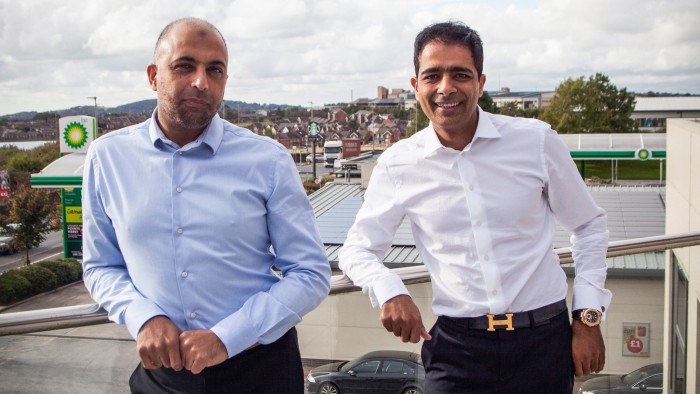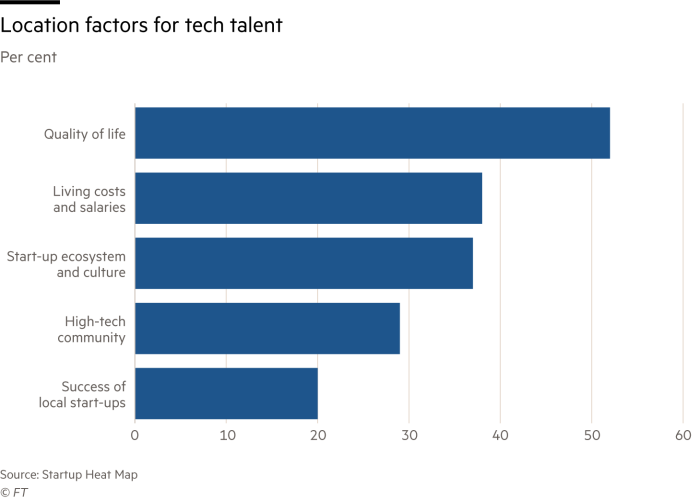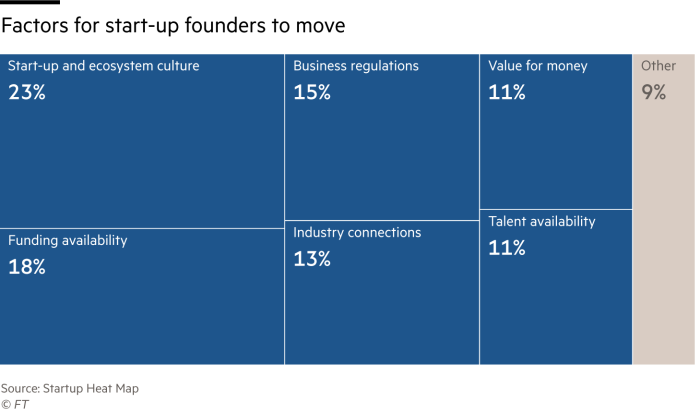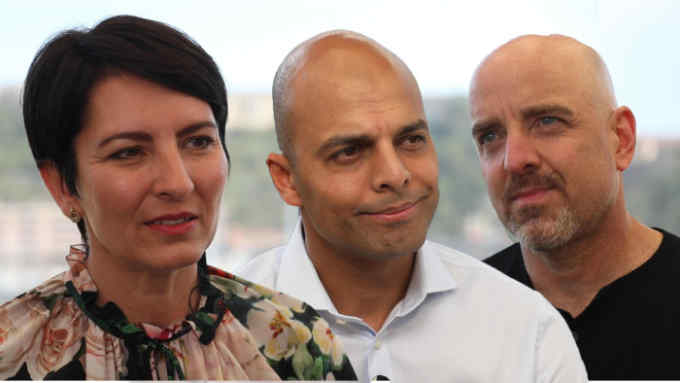How small cities spark big ideas

Roula Khalaf, Editor of the FT, selects her favourite stories in this weekly newsletter.
Conventional wisdom holds that the best place to start a business is a big global city. Locations such as London, New York and Berlin top the lists of start-up hubs, boasting a combination of talent, access to funding and infrastructure to act as hothouses for companies.
But many entrepreneurs are eschewing conventional wisdom. The growth of the internet means that businesses can operate effectively in smaller towns — often with lower costs and benefits such as countryside on the doorstep.
The Issa brothers, owners of EG Group, have never considered leaving their home town of Blackburn in Northern England (population 150,000). What started as a single filling station in 2001 is now one of the world’s biggest forecourt operators after making more than a dozen acquisitions.
It has more than 5,000 sites and 35,000 employees across eight countries. Annual revenues including recent acquisitions are $20bn.
It operates franchises with Spar and Carrefour, the supermarket chains, coffee company Starbucks, and takeaway chains such as Subway and KFC.
Mohsin Issa says being located in Blackburn, 50km north of Manchester, has never held the company back. “We have access to a massive labour pool because it is easy to get to. A lot of people commute from Manchester because they are going against the grain of traffic. We get really good people,” he said.
The green, rolling, Pennine hills are another attraction, along with the Lake District, a world heritage landscape famous for its artists and writers. “People from the US love coming to Blackburn. The landscape is beautiful and you are sitting on the doorstep of the Lake District.”

Manchester airport affords connections to more than 200 destinations.
There are 300 head office staff in Blackburn and despite their millions the brothers have stayed in their home town.
Damian Harrington, Head of Emea Research at Colliers, the property consultants, said that many software businesses had begun in smaller towns, which enabled them to scale at lower cost.
The technology that drives Skype, the internet calling network, was created in Estonia. Despite being owned by Microsoft, work is still carried out in Tallinn and Tartu, a city of 95,000 people.
Ireland’s Teamwork.com, a fast growing 10-year-old company that provides a software platform for teams to collaborate on projects, has remained in the southern port of Cork rather than move to the capital Dublin. It has attracted 22,000 customers including Disney, Netflix and Spotify.
Mr Harrington said: “The majority of start-up decisions are made irrespective of location, in that the opportunity or idea being pursued can be undertaken anywhere provided there is a fine idea, the fire in the belly to succeed and the required funding to support a fledgling business. That said, some cities are clearly more supportive of start-ups than others as a result of the overall proposition the city offers.”

A start-up heat map of Europe produced by consultancy NPO for the European Startup Initiative shows London and Berlin dominate, with Paris and Barcelona a bit behind.
But smaller centres such as Lisbon, Tallinn and Toulouse feature in the top start-up cities.
Some entrepreneurs stay in their hometowns because of a social conscience. Many small towns are dependent on one or two big employers and if they leave it can hollow them out. The resentment created has boosted support for populist politicians such as Donald Trump in the US and Matteo Salvini in Italy.
František Fabičovic founded Alca plast in his garage in Břeclav, a town of 25,000 people in the southern Czech Republic, in 1998. It is home to the company’s only factory with 600 workers, making sanitary ware such as toilet seats. The only other big employer is Gumotex, a maker of rubber boats and car parts. Radka Prokopová, the co-founder of Alca plast, moved from the capital Prague, where she had a party planning business, to marry Mr Fabičovic.
“We think it is important to take care of all parts of the country, not only the capital city,” she said.

Comments